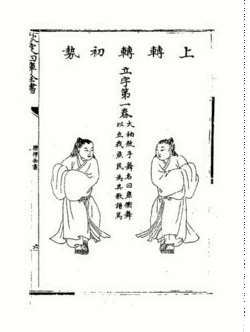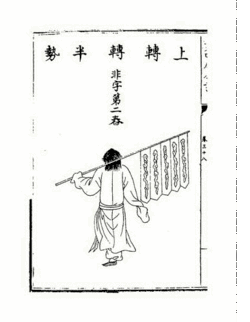Zhu Zaiyu
| Zhu Zaiyu | |||||
|---|---|---|---|---|---|
| Hereditary Prince of Zheng 鄭世子 | |||||
| Reign | 1593–1611 | ||||
| Born | 1536 | ||||
| Died | 19 May 1611 | ||||
| Issue |
Zhu Yixi, Hereditary Prince of Zheng, Prince's grandson Zhu Yitai | ||||
| |||||
| House | House of Zhu | ||||
| Father | Zhu Houwan, Prince Gong of Zheng | ||||
| Occupation | Astronomer, historian, physicist, mathematician, choreographer, music theorist | ||||


Zhu Zaiyu (Chinese: 朱載堉) (1536 – 19 May 1611) was a Chinese mathematician, physicist, choreographer, and musician. He was a prince of the Chinese Ming dynasty. In 1584, Prince Zhu innovatively described the equal temperament via accurate mathematical calculation.[1]
Zhu was born in Qinyang, Henan Province to an aristocratic family, the sixth-generation descendant of the Hongxi Emperor, the fourth emperor of the Ming Dynasty. Zhu inherited the title the Prince of Zheng in 1593, but quickly resigned it to his cousin. On the emperor's order, he was granted a new princely title in 1606, the year he delivered a set of ten musicological treatises to the court, establishing his scholarly merit. His posthumous name was 鄭端靖世子 ("His Excellency The Dauphin of Zheng")
Zhu wrote on music theory and temperament (five treatises survive), music history (two treatises survive), dance and dance music (five treatises survive), and several other works. Three music theory works in particular are associated with the ideas of equal temperament, the「律學新說」 (" on the equal temperament ", 1584), 「律呂精義」("A clear explanation of that which concerns the equal temperament", 1595/96), and 「算學新說」(" Reflection on mathematics", 1603). His work has been described as "the crowning achievement of two millennia of acoustical experiment and research (Robinson 1962:224)"[2] and he is described as "one of the most important historians of his nation's music."[3]



 Zhu Zaiyu's equal temperament ratio in The Complete Works in Yuelu
Zhu Zaiyu's equal temperament ratio in The Complete Works in Yuelu


Zhu also wrote treatises (three survive) on astronomy, physics, mathematics and calendrics, calculated the magnetic declination of Peking, the mass density of mercury and accurately described the duration of one tropical year to correct the Ming calendar.
See also
| Wikimedia Commons has media related to Zhu Zaiyu. |
References
- ↑ Hermann von Helmholtz,Die Lehre von den Tonempfindungen als physiologische Grundlage für die Theorie der Musik . p 258, 3rd edition, Longmans, Green and Co, London, 1895
- ↑ Robinson, Kenneth. A critical study of Chu Tsai-yü's contribution to the theory of equal temperament in Chinese music. Wiesbaden : F. Steiner, 1980.
- ↑ Fritz A. Kuttner. "Prince Chu Tsai-Yü's Life and Work: A Re-Evaluation of His Contribution to Equal Temperament Theory", p.163, Ethnomusicology, Vol. 19, No. 2 (May, 1975), pp. 163–206.
Further reading
- Cho, Gene J. The discovery of musical equal temperament in China and Europe in the sixteenth century. Lewiston, N.Y. : Edwin Mellen Press, 2003.